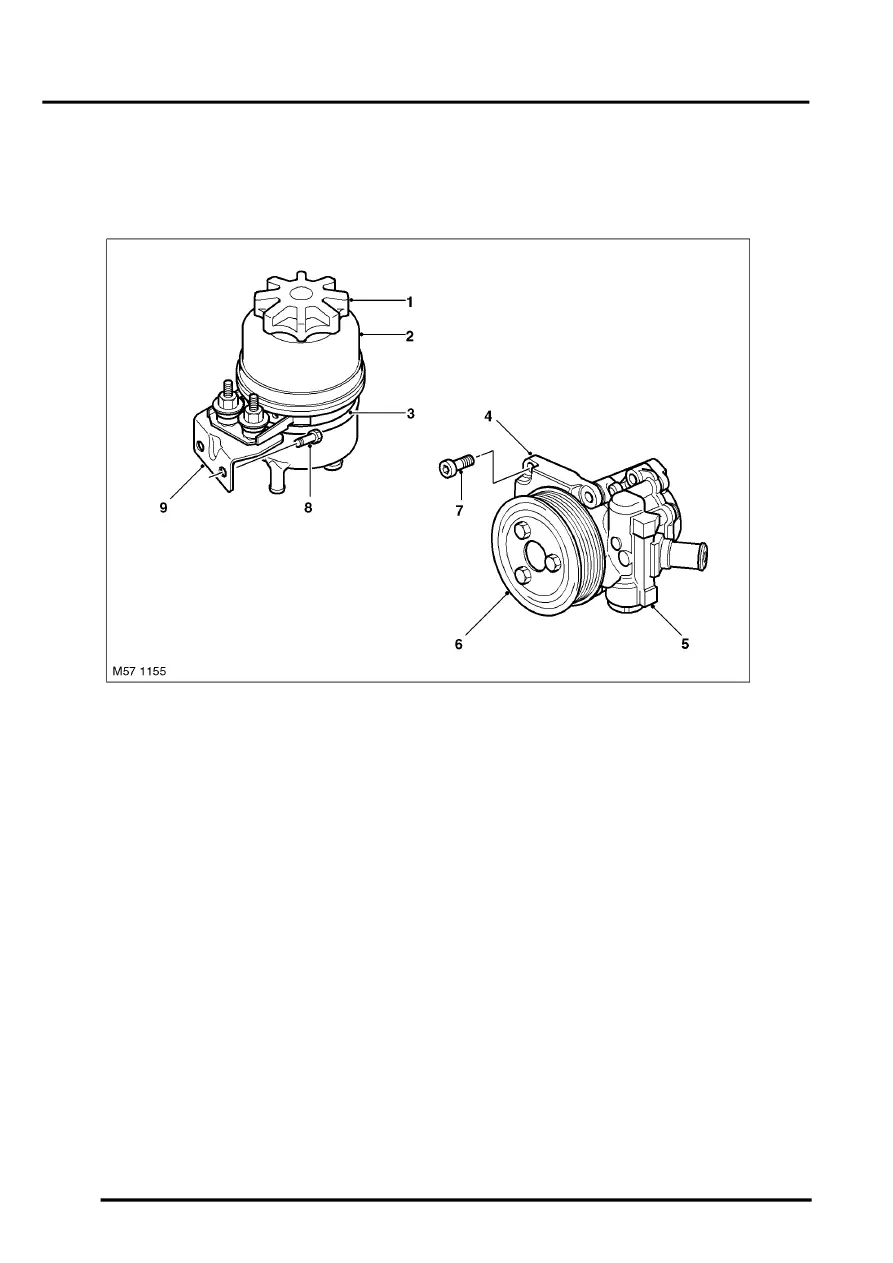L322 Range Rover System Description and Operation

STEERING
57-20
DESCRIPTION AND OPERATION
Power Assisted Steering (PAS) Pump and Reservoir
The PAS fluid pumps used on both the Td6 and V8 models are of the vane type and are similar in their operation. The
pumps are driven by a polyvee belt from the engine crankshaft pulley. A tensioner is used to maintain the correct
tension on the belt.
V8 PAS Pump and Reservoir
1 Cap
2 Reservoir
3 Reservoir mounting bracket
4 Engine mounting bracket
5 Pump assembly
6 Pulley
7 Screw M8 (2 off)
8 Bolt M6 (2 off)
9 Bracket
The V8 PAS pump comprises a body which houses the internal components of the pump. A pressure relief valve,
which also incorporates a flow control valve, is installed in the housing. The pressure relief valve limits the maximum
pressure to between 124 and 132 bar (1800 and 1915 lbf/in
2
). The flow control valve limits the maximum flow to
between 9.75 and 11.25 l/min (2.14 and 2.47 UK gal/min).
A shaft runs longitudinally through the pump. One end of the shaft has a drive flange which accepts the drive pulley.
The opposite end is closed by a cover. The shaft runs in bearings located in the body. Oil seals at each end of the
shaft prevent leakage.
An oval cam ring is located in the body. Ten vanes are housed in a carrier and rotate within the cam ring. The carrier
is mounted in the centre of the shaft and receives positive drive from the shaft via a drive pin. The carrier is seated
against an end plate which is located in the cover. The front of the carrier is covered by a port plate which is located
against a seal plate in the body. The port plate controls the fluid flow into and out of the vanes during their cycle.
The fluid reservoir used on the V8 model is mounted remotely on the LH side of the engine compartment, adjacent to
the engine coolant reservoir.
